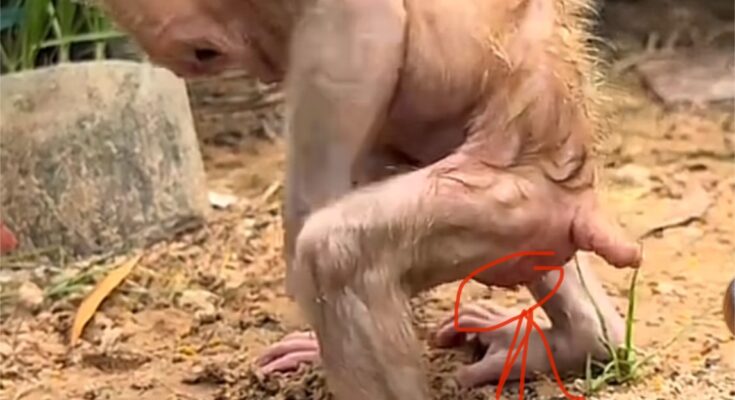Introduction
While herpes simplex virus (HSV) is commonly associated with humans, certain strains of herpesvirus can also infect non-human primates, including monkeys. Genital herpes in monkeys is a less-discussed topic, but it carries significant implications, especially in captive or research settings where close monitoring is necessary. Recognizing the symptoms of genital herpes in monkeys early can help prevent complications, transmission, and promote better care.
Understanding Genital Herpes in Monkeys
In monkeys, genital herpes is typically caused by species-specific herpesviruses, such as Herpesvirus simiae (also known as B virus or Macacine alphaherpesvirus 1). This virus is naturally found in macaque monkeys and often remains asymptomatic. However, it can occasionally manifest in a symptomatic form, especially if the monkey is under stress or has a weakened immune system.
While B virus is usually benign in macaques, it can be deadly if transmitted to humans, which makes early detection and management crucial in facilities housing these animals.
Common Symptoms of Genital Herpes in Monkeys
-
Lesions and Ulcers in the Genital Area
One of the most visible signs is the appearance of small blisters, sores, or ulcers around the genital region. These may resemble cold sores and can be painful or inflamed. The lesions often rupture and crust over before healing. -
Swelling and Redness
Infected monkeys may exhibit noticeable swelling, redness, or irritation in the genital area. This inflammation is often a result of the immune system’s response to the virus. -
Frequent Scratching or Grooming
If a monkey is constantly scratching or excessively grooming its genital region, it could be trying to relieve itching or discomfort caused by herpes lesions. -
Lethargy or Behavioral Changes
A monkey suffering from a herpes outbreak might become less active, withdrawn, or exhibit signs of discomfort. Loss of appetite and reluctance to socialize can also occur. -
Fever and General Malaise
In more severe cases, systemic symptoms like fever, fatigue, or a general unwell appearance can accompany the infection, especially if it’s the first outbreak or the animal is immunocompromised. -
Discharge or Odor
Some monkeys may have abnormal genital discharge or an unpleasant odor associated with secondary bacterial infections of the herpes sores.
Diagnosis and Treatment
Veterinary examination is essential for diagnosis. PCR tests, viral cultures, and blood tests can confirm the presence of the herpesvirus. Although there is no cure, symptoms can be managed with antiviral medications such as acyclovir, along with supportive care to reduce stress and boost the immune system.
Prevention and Safety Measures
To protect both the monkey and human handlers, regular health monitoring, proper hygiene practices, and use of protective equipment are crucial in research or zoo environments. Monkeys showing symptoms should be isolated and treated promptly to prevent transmission.
Conclusion
Genital herpes in monkeys may not always be immediately obvious, but signs like genital lesions, behavioral changes, and inflammation should prompt immediate veterinary attention. Early detection not only ensures the monkey’s well-being but also safeguards human health, especially in settings where zoonotic transmission is a risk. Awareness and vigilance remain key in managing this often-overlooked condition in non-human primates.



